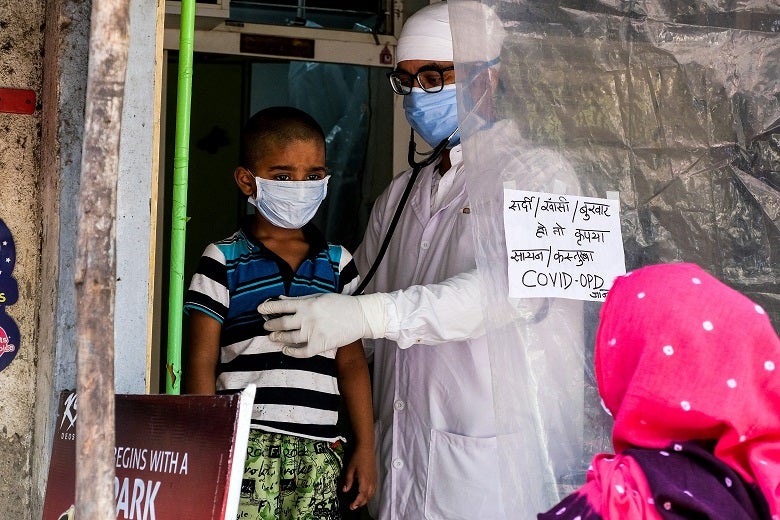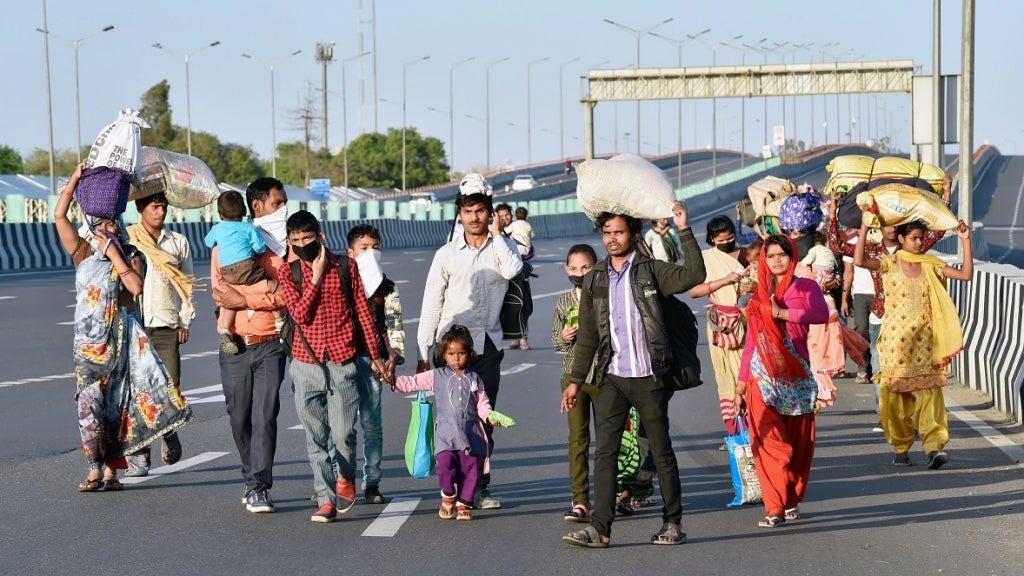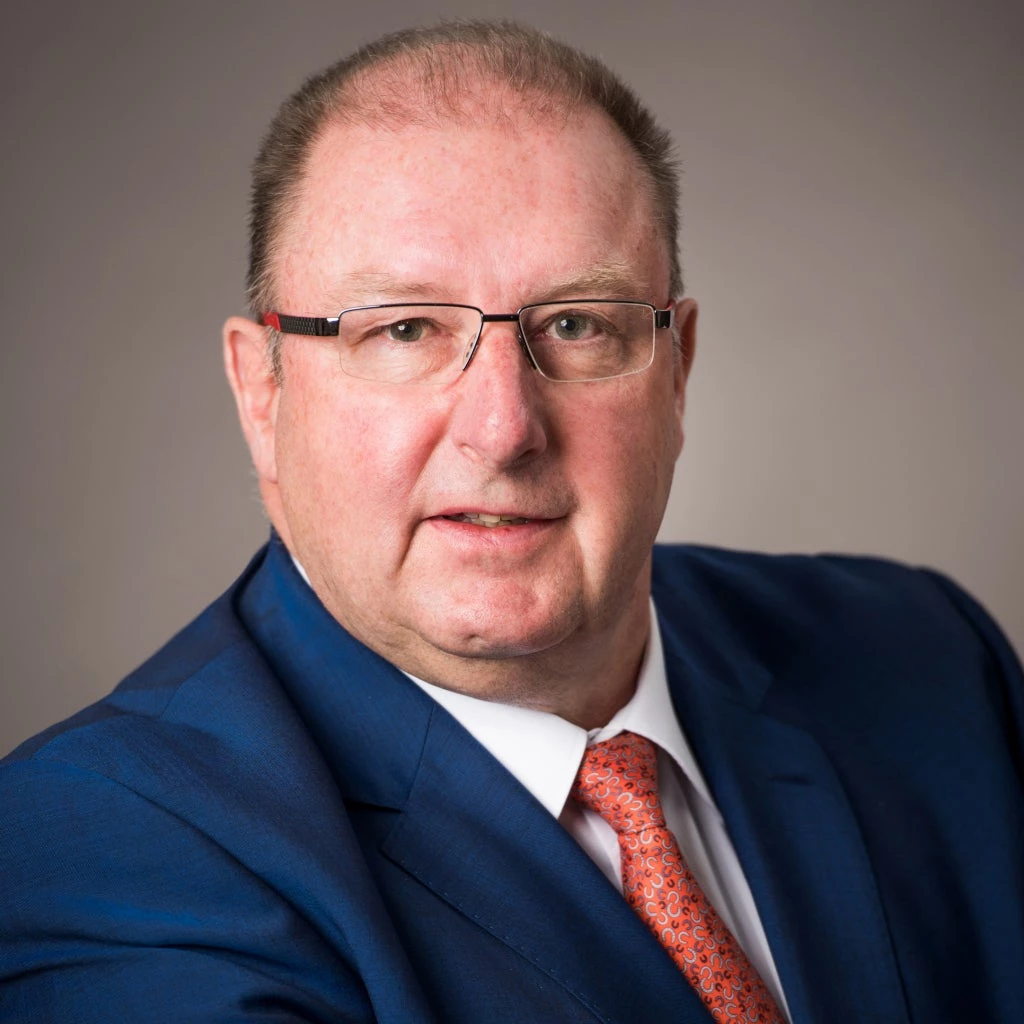Among these countless extraordinary people, four have inspired me recently.
Najibullah, a community health specialist in Afghanistan, is working with mullahs and community leaders, helping provide basic but vital knowledge on how villagers can protect themselves from COVID-19.
Farhat, a young apparel factory worker in India, is part of the vast Women Self Help Groups network, who are meeting shortfalls in protective equipment in the country by producing masks—more than 19 million so far.
Arefin, a genetics engineer in Bangladesh, is using his 3D printer to develop cost-effective face shields to protect doctors and nurses in his community.
Shanti, a secondary school teacher in Nepal, prepares and delivers lessons through the local radio station so that poor and vulnerable children in her community can have access to learning.
There’s a lesson to learn from these four courageous individuals: to stay resolute as we help South Asian countries protect their people and recover their economies.
Overcrowded cities and homes have made it easier for the virus to spread. The region is now approaching close to 800,000 reported cases and over 19,000 deaths.
While COVID-19 hit South Asia later than most regions, infection rates are now spiraling upward.
Overcrowded cities and homes have made it easier for the virus to spread, and new cases are increasing exponentially. The region is now approaching close to 800,000 reported cases and over 19,000 deaths.
Besides the dire human toll, the pandemic has triggered an economic fallout across the region. Our latest estimates show that South Asia will likely experience its worst economic performance in the last 40 years. Growth is projected to contract by 2.7 percent in 2020.

Since then, our support has grown to more than $4.2 billion, and more than $1.9 billion of these funds have been disbursed already. This support has helped governments buy vital protective equipment and medical supplies for frontline workers, provide learning to children, and deliver cash transfers and food to the most vulnerable.
- In Afghanistan, the first shipment of 150,000 items of personal protective equipment is helping 6,800 frontline health care providers.
- In Bangladesh, we have provided more than $1 billion in financing to help create quality jobs and accelerate economic recovery from the pandemic as well as build resilience to future crises.
- In Bhutan, we are helping train frontline workers; procure test kits, medical goods and supplies; acquire laboratory equipment; and support laboratory experts as well as communications campaigns that promote good health habits.
- In India, we have provided $2 billion to support health care and strengthen social protection for the poorest and most vulnerable, especially women and migrant workers.
- In Maldives, we have helped the government provide temporary support to workers who have lost their jobs or income as a result of the pandemic, giving a lifeline to struggling families and enabling them to stay at home.
- In Nepal, the Bank’s support has helped equip designated health facilities with personal protective equipment and hygienic materials and increase the diagnostic capacity of laboratories for responding to public health emergencies.
- In Pakistan, we helped the government expand its national safety net, the Benazir Income Support Program (BISP): 4.5 million existing beneficiaries received an increase in transfers, while 7.5 million new beneficiaries received a one-time transfer to help with COVID related issues.
- In Sri Lanka, we are helping scale up emergency response mechanisms, as well as strengthen the capacity of laboratories and hospitals. This includes developing the first Bio Safety Level 3 laboratory at the National Medical Research Institute.
World Bank support has helped governments buy vital protective equipment and medical supplies for frontline workers, provide learning to children, and deliver cash transfers and food to the most vulnerable.

As we look beyond the immediate impacts, it is certain that the pandemic will increase poverty and worsen inequality. Among world regions, South Asia may see the largest increase in the number of poor because of COVID-19. Low-income people, especially informal workers, are at great risk, as they lack access to health care and are more likely to have lost their jobs.
We are aiming to provide additional funding of close to $2 billion in the coming days. This support will help South Asian governments revive economies, jump start businesses and jobs, and protect their people.
Throughout my country visits in South Asia, I have met many remarkable people like Najibullah, Farhat, Arefin and Shanti, who embody the resilient and innovative spirit of the region. The World Bank stands alongside them as the battle against COVID-19 intensifies. Together, we can overcome the worst impacts of the pandemic and build back better.


Join the Conversation